Fish farming is one of the fastest-growing industries in the world, and it’s no wonder. With growing concerns over food sustainability, fish farming offers an efficient and sustainable way to produce food. It is the practice of raising fish in captivity. Aquaculture is the best-known type of fish farm, where fish are raised in confined environments. Fish farming can be done with various species, from carnivorous to vegetarian.
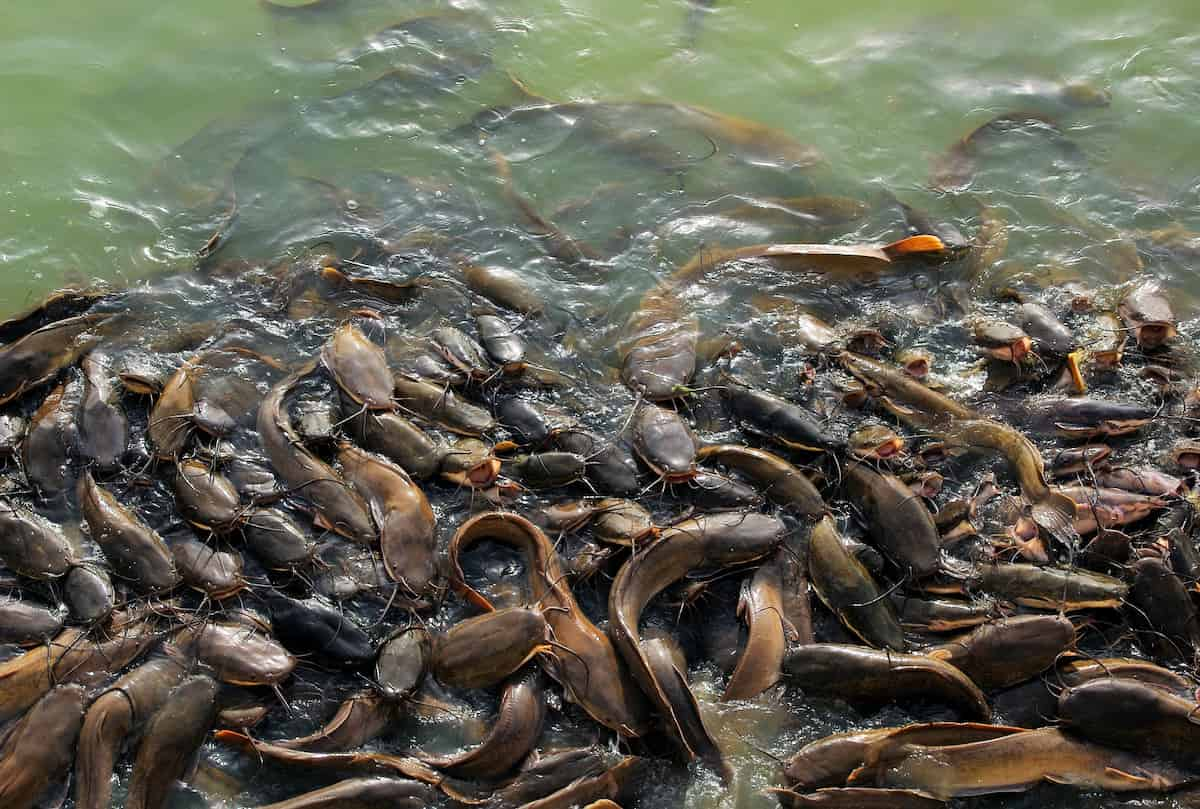
How to start fish farming in South Africa
Freshwater fish farming in South Africa
It is severely limited by the supply of suitable water: the correct quality and quantity. The most important areas for producing freshwater fish species in South Africa are the Western Cape, Eastern Cape, Limpopo, and Kwazulu-Natal. Fish farming has been practiced for over 2,000 years and is currently one of the most important forms of food production worldwide.
It produces more than half a billion tonnes of seafood yearly, accounting for about 9% of global food production. In addition, indoor fish farming can have benefits, such as being more sustainable than traditional fishing methods and helping reduce environmental impact.
Steps to start fish farming in South Africa
Fish farming is becoming more and more popular in South Africa as people turn to sustainable methods of agriculture. Fish farming can be profitable, but it requires careful planning and execution. To start a fish farm in South Africa, you must obtain the appropriate permits. Then, once you have your permits, you must acquire the necessary equipment and facilities. Finally, you must invest in a suitable land area and set up your farm.
Choose the right type of fish for your farm
Aquaculture focuses on raising specific types of fish, so make sure you choose the right species for your farm. Some common fish raised on farms include tilapia, catfish, carpsucker, bream, stingrays, and prawns.
Research the market
There is no one-size-fits-all approach to starting a fish farming business in South Africa, as the market will vary depending on your product and geographical location. However, gathering information about the local fish market and potential buyers is essential to ensure success.
Secure land and equipment
If you have decided to start a fish farming business in South Africa, you will need to secure land and equipment. Fish farming requires large amounts of space, so many new entrepreneurs opt for land acquisition in remote or rural areas.
In case you missed it: Dairy Farming in South Africa: Breeds, How to Start
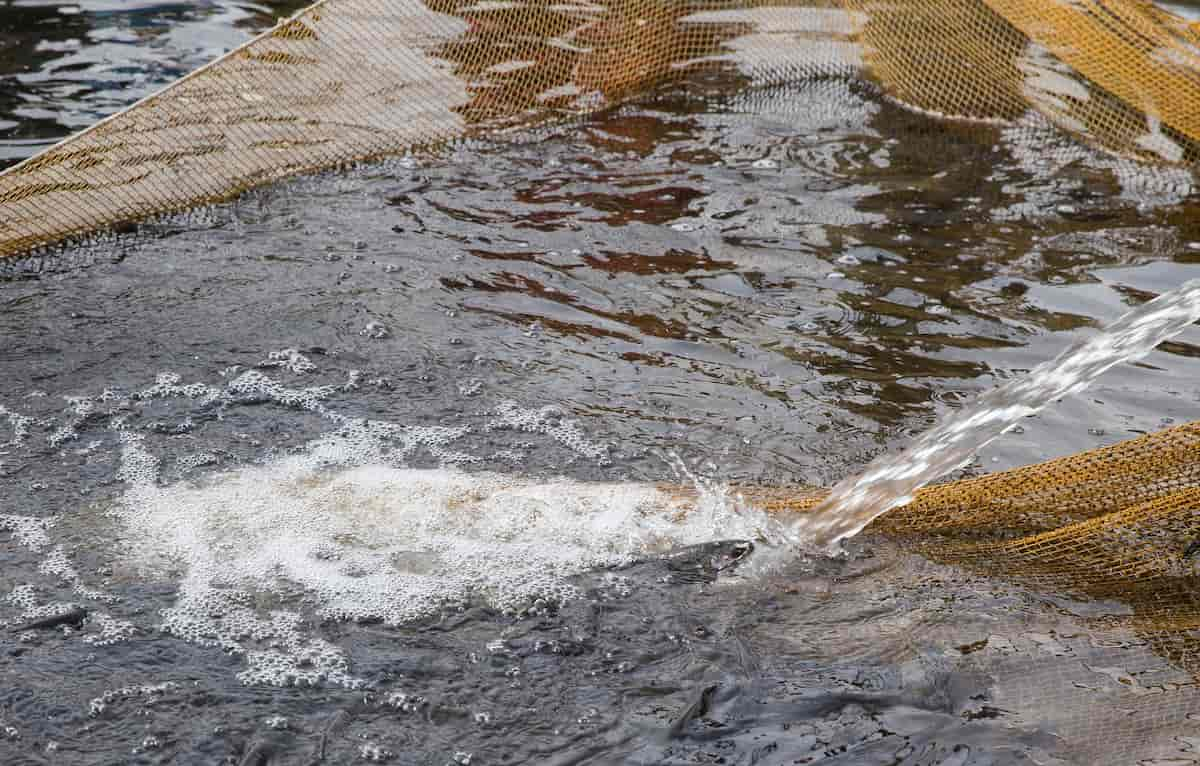
Set up a proper aquaculture system
A proper aquaculture system includes an effluent treatment plant to remove toxins from the water, totems to keep the fish confined, and a feed production area to provide the correct diet for the fish.
Plan for a high-maintenance farm
Fish require a lot of care and attention – they need clean water and feed, plenty of space to swim and breed, and protection from predators. Make sure your farm has enough people to handle all these requirements.
Get financial approval from your bank or insurer
Before starting any business in South Africa, ensure you get financial approval from your bank or insurer – this will help protect you if something goes wrong while actively farming.
Develop a marketing plan
Creating a marketing plan is a key to successfully launching your fish farming business in South Africa. Plan how you will reach potential customers through online advertising, public relations campaigns, and targeted social media outreach. There is a growing demand for fish worldwide, and South Africa is no exception. Fish farming has become an increasingly popular business venture in South Africa due to its temperate climate, ample freshwater resources, and proximity to key global markets.
To get started in fish farming, you will need to obtain a permit from the department of agriculture. You will also need to purchase suitable equipment and supplies, such as tanks, filters, feed, and spawning devices. You should also consult a professional fish farmer to ensure that you are starting your business correctly. Once you have established your business, you will need to market it aggressively. You can do this by marketing your product through local publications and online directories. You can also participate in trade shows and events focusing on fish farming.
Advantages of fish farming in South Africa
- Fish farming is an important aquatic production sector in South Africa. The industry employs around 8,000 people and has the potential to grow further due to increasing demand for seafood and the government’s focus on sustainable aquaculture.
- Fish farming in South Africa has several benefits that make it an attractive option. First and foremost, fish farming is environmentally friendly. Fish produce little waste, and the by-products of their metabolism are used to feed other fish or marine mammals. Furthermore, fish farmers use minimal inputs, making them a more sustainable choice than traditional land-based agriculture.
- Another benefit of fish farming is that it can provide a high-quality food product. In addition to being rich in protein and vitamins, fish is low in fat and cholesterol. This makes them a healthy option for consumers looking beyond meat products.
- Finally, fish farming in South Africa is labor-intensive, which means it is relatively affordable compared to other forms of agriculture. Therefore, it is ideal for small businesses and subsistence farmers who want to start producing food products but don’t have the resources or manpower required for other types of cultivation.
In case you missed it: Bee Farming in South Africa: How to Start, Beekeeping Cost, and Profit
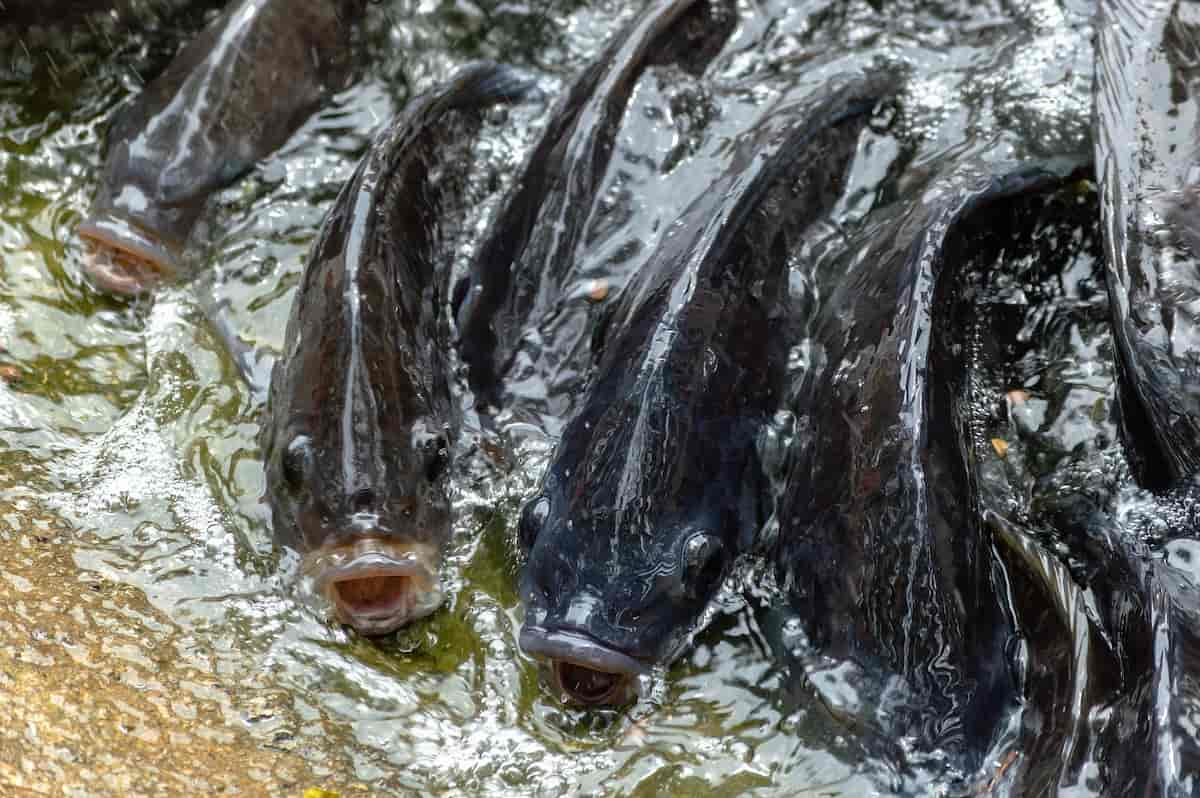
Site selection for fish farming in South Africa
Fish farming is a growing industry in South Africa with the potential to provide several benefits for the environment and communities involved. However, there are several factors to consider when selecting a site for fish farming, including climate, water quality, and available nutrients. Fish farming can be done in several different environments, from floodplains to reservoirs. The type of land required will depend on the species of fish being farmed and the type of feed used. Some farms use natural lakes or rivers as their water source, while others rely on artificial systems.
The key consideration when selecting a site for fish farming is climate. Fish require warm water temperatures to thrive, so sites that are too cold or too hot may not be suitable. Another important factor to consider is water quality. Fish require clean water to survive, so it is important to find a site with good water quality without excessive pollution levels. Finally, fish farms require large quantities of nutrients to function properly, so it is also important to check for availability at the site before making a decision.
Fish farming methods in South Africa
- Fish farming in South Africa is a growing industry and has the potential to provide a sustainable source of food for both humans and fish. The benefits of fish farming include improved feed efficiency, reduced environmental impact, and increased production.
- Open-water farming is the most common type of fish farming in South Africa. It involves growing fish in floating cages or pens on open water. This method is easy to set up and can be used for various fish species, but it is risky because there is no way to control the environment outside the pens.
- Recirculating farming involves using large tanks or ponds filled with fresh water and circulated continually. The tanks are divided into smaller sections called “pods,” each having a separate access point so that the fish can feed and breed. This method is more complicated than open-water farming. Still, it allows farmers to control the environment more closely, making it better suited for salmon, carp, and other hardy aquatic species.
- Integrated farming combines aspects of both open-water and recirculating farming. For example, fish are grown in large ponds surrounded by nets that allow them to swim freely but prevent them from escaping. The nets are then removed once the fish reach a certain size, allowing them to be processed as food. This type of farming is best suited for delicate species such as tilapia and catfish because it allows them to be raised in close quarters without crowding out other animals or damaging ecosystems.
Water quality for fish farming in South Africa
The quality of water used for fish farming can greatly impact the fish’s health and productivity. Tap water can often contain high levels of dissolved solids (minerals), bacteria, and other contaminants that can harm the growth and health of the fish. Sometimes, these contaminants can also make tap water unsafe to drink.
Many farmers use controlled marine or brackish water to avoid these problems. These waters are typically taken from inland bodies of water treated with chemicals or filtered through rocks. Controlled marine or brackish waters are often more expensive than tap water, but they are much cleaner and better suited for raising Fish species such as tilapia, catfish, and carp.
In case you missed it: Greenhouse Farming in South Africa: How to Start, Crops, and Cultivation Practices
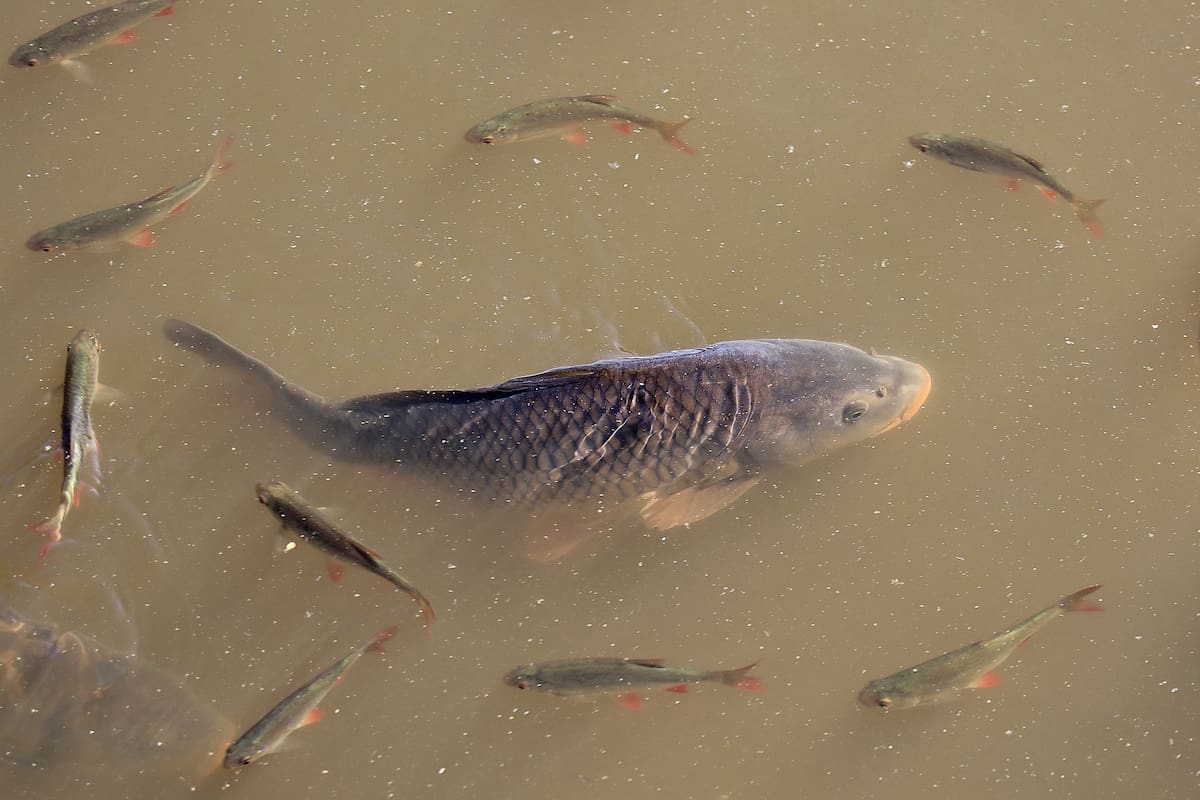
Caring & other management tips for fish farming in South Africa
- Fish farming in South Africa is an environmentally friendly and profitable way to produce a variety of seafood. Primary considerations for fish farming in South Africa are land requirements, wastewater treatment, and climatic conditions.
- Fish farming can be done using a variety of water types, including freshwater, brackish water, or marine water. However, freshwater is the most common water used for fish farming in South Africa. The main advantage of freshwater is that it has low concentrations of salts and other pollutants.
- Fish farming typically involves raising fish in tanks or ponds. Fish farms can be large or small, depending on the type of fish being raised and the number of tanks or ponds involved.
- Tanks or ponds used for fish farming should be well-maintained to ensure a high level of productivity. This includes regular cleaning and maintenance to reduce the risk of diseases such as salmon lice and white syndrome. In addition to regular maintenance, proper irrigation is essential for successful fish farming. Irrigation systems can be installed using various methods, including flood, sprinkler, drip, or perforated pipe systems.
- Fish farmers should also take into account climate conditions when designing their farms. Fish require warm temperatures to thrive, so farms near the coast will likely need more heat than farms inland. In addition to temperature requirements, fish farms must also consider rainfall levels and humidity fluctuations.
What do I need to start a fish farm business in South Africa?
To start a fish farm business in South Africa, you will need the following: land, a water source, fish feed, and a processing plant. The type of fish you plan to farm will also play a role in determining the necessary components of your business. For example, salmonids require colder water than tilapia. Therefore, you will also need to factor in the cost of these supplies and equipment when calculating your starting capital.
Loans required for fish farming in South Africa
Loans are available at low-interest rates, and the government provides technical assistance and marketing support. In addition to financial assistance, the government has also enacted legislation that promotes aquaculture development. These measures have helped to create an environment in which fish farming can be profitable for farmers.
What kind of fish is best to farm in South Africa?
- Several freshwater fish are farmed in South Africa; however, Emerging Farmer’s supply species are the O.niloticus tilapia, originating from a company based in the Netherlands.
- Freshwater species cultured in South Africa include rainbow trout, brown trout, crocodiles, ornamental fish, African sharp-tooth catfish, Mozambique and Nile tilapia, marron crayfish, and common carp.
Fish production areas in South Africa
The country of South Africa is well-known for its harsh climate and its vast range of animal types. However, it is also a leading producer of fish in the world. In fact, according to one estimate, the country produces more than three-quarters of all the fish produced in Africa. Freshwater fish farming is limited by the supply of suitable water: the correct quality and quantity. The most important areas for producing freshwater fish species in South Africa are the Western Cape, Eastern Cape, Limpopo, and Kwazulu-Natal.
In case you missed it: Hydroponic Farming in South Africa: How to Start, Crops, and Cultivation Practices
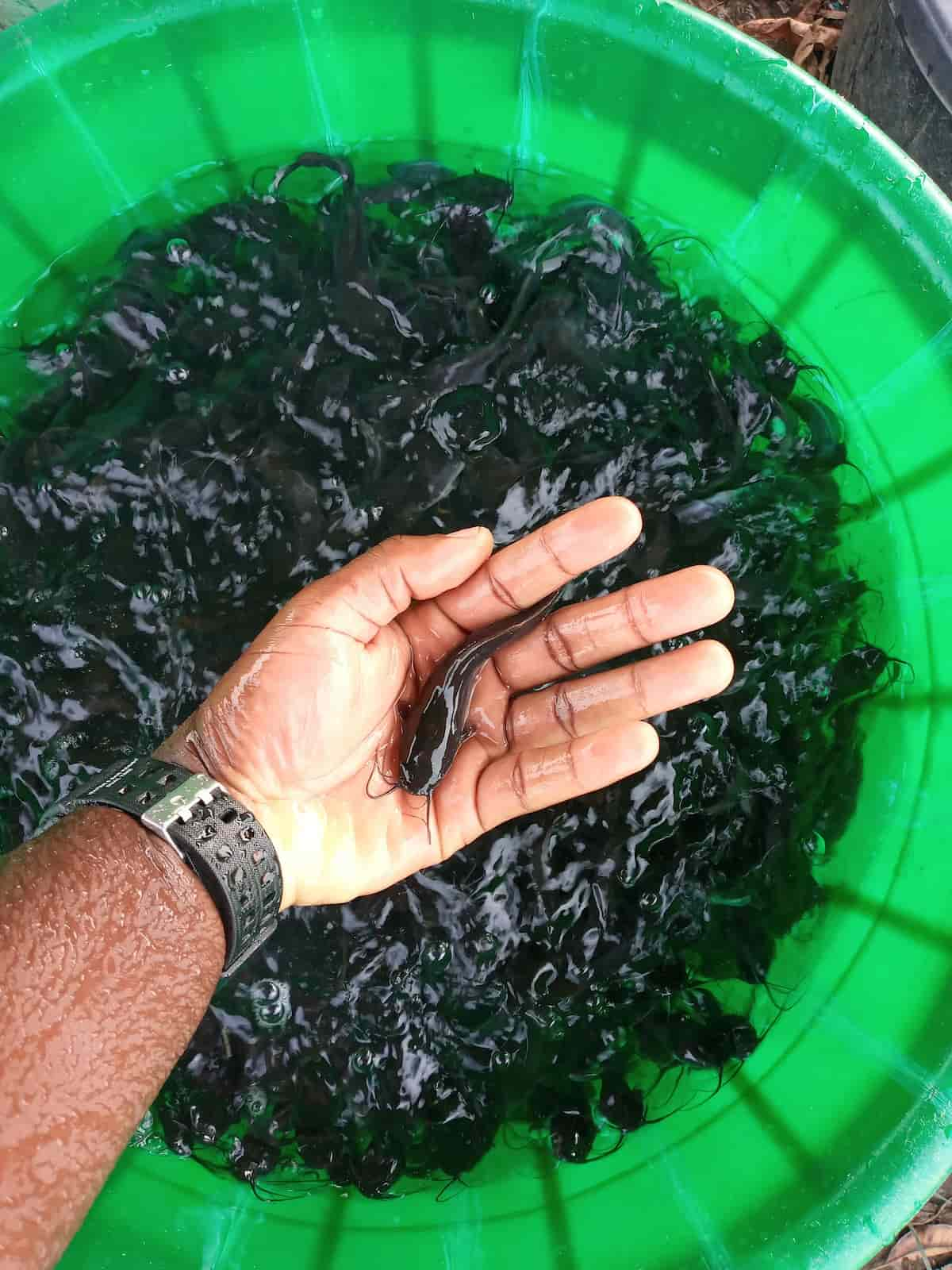
Fish farming problems in South Africa
- Fish farming is an important aspect of the South African economy, and fish farming is an important seafood industry sector. However, fish farming has some problems that need to be fixed.
- One major problem with fish farming in South Africa is that the water quality is not good enough. This means that the fish are not getting the proper nutrition, which can lead to diseases and problems with reproduction. Additionally, the water can become contaminated with pollutants from nearby factories or farms, which can cause fish problems.
- Another big problem with fish farming in South Africa is that there are not enough resources for farmers to grow their fish. This means they have to rely on imports from other countries, which can be expensive and difficult to get hold of.
General practices for starting fish farming in South Africa
Fish farming in South Africa has been a growing industry for some time now. The country has several lakes and rivers that can cultivate fish, making it a very cost-effective option. Fish farming is not just limited to these bodies of water but can also be practiced in ponds. The basic principle behind fish farming is providing a controlled environment where the fish can grow and reproduce. This is done by providing them with feed, water, and shelter.
The feed is usually made up of plant-based material, while the water content should be high enough to give the fish plenty of oxygen and nutrients. To raise healthy fish, farmers must follow specific practices. For example, they should never overfeed their fish or force them to eat food they do not like or prefer. Fish farming also requires regular maintenance to ensure the tanks are clean and free from parasites and disease.
Fish farming challenges in South Africa
The main challenge when setting up a fish farm in South Africa is ensuring the proper environment for the fish. This includes ensuring there is enough oxygen and freshwater as well as providing a suitable climate. To provide the best possible environment for the fish, farmers must also have an accurate knowledge of their specific fish species and feeding habits. Another challenge farmers face when managing their fish farms is parasites and diseases.
Parasites can be very harmful to the health of the fish, while diseases can wipe out entire batches of fish if not properly treated. To combat these problems, farmers use various methods, including parasite control programs, regular cleanings of tanks, and antibacterial treatments. Fish farming in South Africa faces significant challenges. These range from the high cost of feed to water shortages.
One of the most pressing issues is that fish farms require large quantities of feed, which can be expensive to produce and transport. This is partly due to the low fish production value in South Africa, which means high demand for feed ingredients. Fish farming also relies on a reliable supply of clean water. Inadequate or contaminated water can lead to stunted growth rates and disease outbreaks in fish, leading to major financial losses for farmers.
In case you missed it: How to Start Goat Farming in South Africa: Business Plan, Breeds, Cost, Profit, and Management
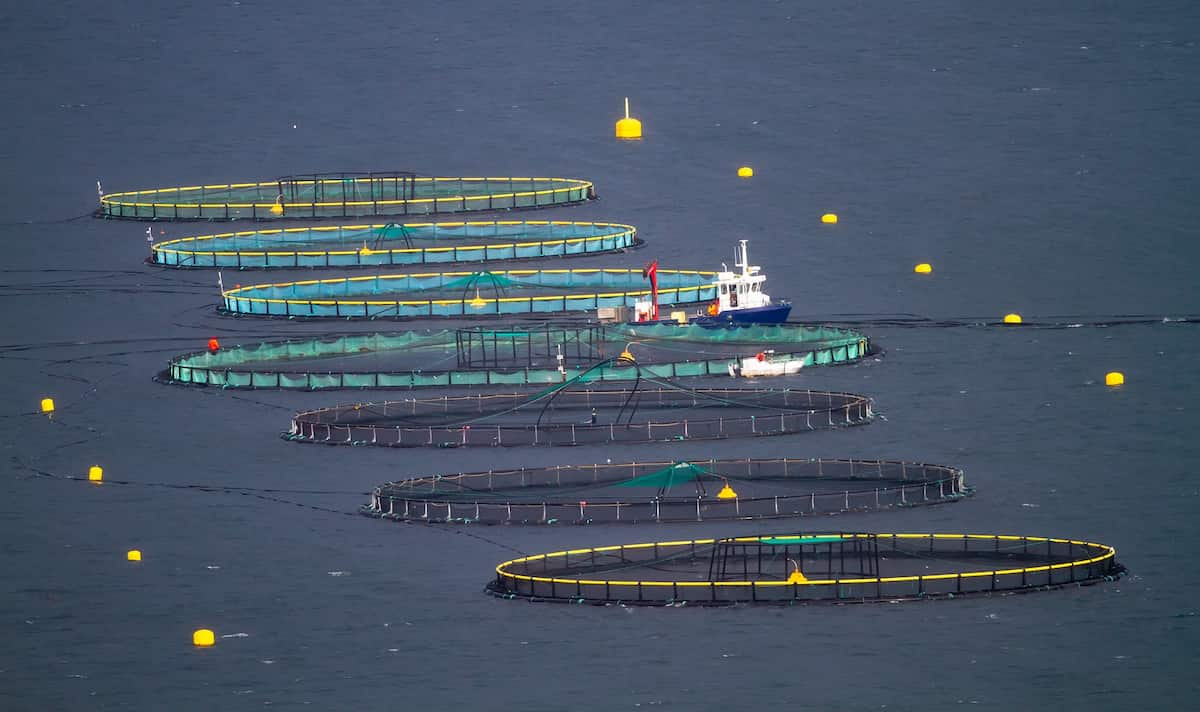
How much does it cost to start fish farming in South Africa
Setting up a fish farm can vary depending on the size and type of farm, but generally, it is not expensive. There are several factors to consider when estimating the cost of setting up a fish farm, including the location, water quality and availability, fish species, feed costs, and labor. Commercial fish farming in South Africa uses large, open-air ponds. These ponds can hold up to 10 million fish and typically cost around R1 million to set up. Commercial fish farmers generally use feed pellets made from fishmeal and squid ink to provide the fish with enough nutrients and food.
Conclusion
Fish farming has been around for centuries and is a popular industry in South Africa. The country has a long coastline and abundant freshwater resources, which makes fish farming an ideal option for farmers. Fish farms can provide many people with a livelihood and help reduce the environmental impact of fishing operations. In addition, fish are a nutritious and affordable source of protein, and they can be farmed in various environments. Fish farming in South Africa is particularly booming due to its high-quality seafood products.
- How to Build a Low-budget Goat Shed: Cheap Ideas and Tips
- Goat Farming Training Programs in India: A Beginner’s Guide
- Types of Pesticides Used in Agriculture: A Beginner’s Guide
- Economical Aquaculture: A Guide to Low-Budget Fish Farming
- 15 Common Planting Errors That Can Doom Your Fruit Trees
- How to Make Houseplants Bushy: Effective Tips and Ideas
- Innovative Strategies for Boosting Coconut Pollination and Yield
- Pollination Strategies for Maximum Pumpkin Yield
- The Complete Guide to Chicken Fattening: Strategies for Maximum Growth
- Natural Solutions for Tulip Problems: 100% Effective Remedies for Leaf and Bulb-Related Issues
- Revolutionizing Citrus Preservation: Towards a Healthier, Greener Future
- Natural Solutions for Peony Leaf and Flower Problems: 100% Effective Remedies
- Maximizing Profits with Avocado Contract Farming in India: A Comprehensive Guide
- Natural Solutions for Hydrangea Problems: 100% Effective Remedies for Leaf and Flowers
- The Ultimate Guide to Choosing the Perfect Foliage Friend: Bringing Life Indoors
- From Sunlight to Sustainability: 15 Ways to Use Solar Technology in Agriculture
- The Ultimate Guide to Dong Tao Chicken: Exploring from History to Raising
- The Eco-Friendly Makeover: How to Convert Your Unused Swimming Pool into a Fish Pond
- Mastering the Art of Delaware Chicken Farming: Essentials for Healthy Backyard Flocks
- 20 Best Homemade Fertilizers for Money Plant: DIY Recipes and Application Methods
- How to Craft a Comprehensive Free-Range Chicken Farming Business Plan
- Brighten Your Flock: Raising Easter Egger Chickens for Beauty and Bounty
- How to Optimize Your Poultry Egg Farm Business Plan with These Strategies
- Subsidy for Spirulina Cultivation: How Indian Government Schemes Encouraging Spirulina Farmers
- Ultimate Guide to Raising Dominique Chickens: Breeding, Feeding, Egg-Production, and Care
- Mastering the Art of Raising Jersey Giant Chickens: Care, Feeding, and More
- Ultimate Guide to Raising Legbar Chickens: Breeding, Farming Practices, Diet, Egg-Production
- How to Raise Welsummer Chickens: A Comprehensive Guide for Beginners
- How to Protect Indoor Plants in Winter: A Comprehensive Guide
- Ultimate Guide to Grow Bag Gardening: Tips, Tricks, and Planting Ideas for Urban Gardeners
- Guide to Lotus Cultivation: How to Propagate, Plant, Grow, Care, Cost, and Profit
- Agriculture Drone Subsidy Scheme: Government Kisan Subsidy, License, and How to Apply Online
- Ultimate Guide to Raising Araucana Chickens: Breed Profile, Farming Economics, Diet, and Care
- Bringing Hydroponics to Classroom: Importance, Benefits of Learning for School Students
- Ultimate Guide to Raising Polish Chickens: Breed Profile, Farming Economics, Diet, and Care
- Ultimate Guide to Raising Australorp Chickens: Profile, Farming Economics, Egg Production, Diet, and Care
Fish farming can diversify the economy of Botswana which is dominated by the mining sector.
I’m interested in fish farming. I have already identified a suitable site but I guess I still need more information
i appreciate for this knowledge.
Hi, I have a farm in umkomaas that is ideally suited for fish farming…can you please assist me in getting this project up and running…thank you
I would like to know who can help.me to get my Fish Farm Permit.